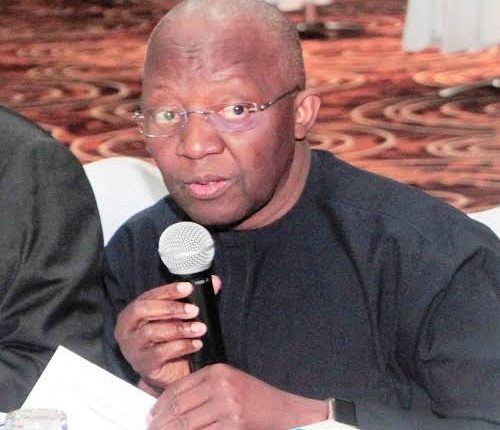
The Chairman of NERC, Sanusi Garba
The Nigerian government is to pay the sum of N1.6 trillion as subsidies for electricity consumers in 2024, as the Nigerian Electricity Regulatory Commission (NERC) reviews existing tariffs to avert adverse impact of additional charges on consumers.
The Chairman of NERC, Sanusi Garba, who disclosed this at a Press briefing in Abuja the nation’s capital, explained that the amount represents a monthly average of N120 billion.
Garba, who announced the release of a new electricity tariff regime for the eleven Electricity Distribution Companies, DISCOs, said the hikes cannot be implemented because the Federal government has agreed to subsidise electricity.
He stressed that though the new Multi-Year Tariff Order 2024 has approved increases in rates, the intervention of the federal government means consumers will not be paying higher price for electricity.
“For the first time, we have published what each DisCo should charge and we have also published the amount they are allowed to charge based on government policy because the government has decided to in the meantime continue to pay subsidies.
“If you check the order, you will see that tariffs are not going up but you will see what the DisCos should have been charging and you can also see in the tariff order the amount of subsidies the government will be paying to cover the gap.”
The NERC boss stressed further that with the new policy, electricity tariff will remain as it has been since December, 2022.
According to Garba, though the new Multi-Year Tariff Order 2024 has approved increases in rates, the decision of the Federal Government means consumers will not be paying higher price for electricity.
Speaking further, he stressed that Government will continue to subsidise electricity to ease the financial burden on Nigerians due to economic challenges confronting the country.
According to him, “the government has decided for now, arising from the cost of living and so many others, in the meantime continue to subsidise electricity.”
Continuous Review
Throwing more light on the latest review, Mr. Garba said: “I want to correct the impression that for one year we haven’t had any review. The reality is that the reviews have been done but what happened is what you pay as a customer is a blend of regulation and and policy.
“If we have determined that you should be paying N150 and the federal government says you should pay N60 so that it pays the difference, then that is what it is; the government would now provide the money.
” And that is why in the current tariff order that is posted on our website, you will see this is what you should pay, and what the government says you should pay. And the government will provide for the difference except there is a change of the government policy”
“For the first time we mandated all the Discos to provide five-year capital investment plans, and we reviewed it for prudence and efficiency, and we made sure that all these investments are targeted at improving services,” he explained.
According to him NERC has it’s projection on what will be required if the government does nothing on the tariff and it will be N1.6trn to fund electricity and that is 30bn a month.
“One of the new things in tariff order is to avoid rate shock, we will now be doing the minor tariff review very frequently, like every month,’’ he said.
Subsidy Payments
However, analysis of the order according to DisCos showed that the government will in 2024, pay N233.26 billion (or N19.44 billion monthly) as subsidies for consumers under the Abuja Electricity Distribution Company, AEDC, franchise.
NERC stated that AEDC had applied for N151.07 as cost reflective tariff per kilowatt hour but the Commission approved N120.88/kWh. With the tariff freeze, consumers would be charged only N63.24/kWh while the government will pay N58.12/kWh.
For electricity consumers served by Ikeja Electric, the government will pay N238.20 billion (or 19.85 billion monthly) as subsidies in 2024. IKEDC had for N128.18/kWh as cost reflective tariff, the Commission approved N112.10/kWh. With the tariff freeze, consumers will be charged only N56.60/kWh while the government will pay N55.50/kWh as subsidy.
Benin DisCo, the Commission said consumers will enjoy a cumulative subsidy of N140.85 billion (or N11.74 billion monthly). The utility had applied for an astronomical N277.70/kWh as cost reflective but got approval of N126/kWh from the regulator. The new policy means consumers will pay N60.10/kWh while the government will pay N65.90/kWh as subsidy.
VON